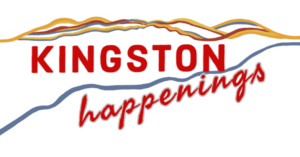Kingston Area History – Overview and Articles – Indigenous Peoples
The Indigenous Peoples of the Kingston Area
The area now known as Kingston, NY, was originally the homeland of the Esopus people, a subgroup of the Lenape (or Delaware) nation. The Esopus, like other Lenape groups, thrived in the Hudson Valley for millennia, long before European contact.
The Esopus were not just hunter-gatherers; they were also adept farmers, cultivating crops like corn, beans, and squash. They established villages along the Hudson River and its tributaries, living in longhouses constructed from bark and wood. Their diet was supplemented by hunting game and fishing, and their communities were known for skilled craftsmanship in basket weaving and pottery.
While the Esopus sought peaceful relations, tensions escalated with the Dutch settlers in the 1600s. The Dutch, driven by expansion and trade, encroached upon Esopus lands. Tragically, some Dutch settlers took Esopus individuals, particularly women and children, as slaves. This, among other grievances, led to a series of conflicts known as the Esopus Wars.
By 1661, after enduring significant strife, the Esopus were compelled to sign a peace treaty with the Dutch. This treaty not only marked the end of hostilities but also resulted in the Esopus ceding significant portions of their ancestral lands. They were relocated to areas in present-day Ulster County. The subsequent years saw a decline in the Esopus population, exacerbated by diseases introduced by Europeans and further territorial pressures.
Long time Kingston Historian, Ed Ford, discusses the early interactions between the settlers and the Esopus
Today, descendants of the Esopus, as part of the broader Lenape diaspora, continue to honor their heritage. While their numbers in the region might be limited, their efforts to preserve and promote their culture and traditions remain vibrant.
Noteworthy Aspects of the Esopus Culture:
- Language: The Esopus spoke a dialect of the Lenape language, which is part of the larger Algonquian language family.
- Spirituality: The Esopus had a profound spiritual culture, with ceremonies, rituals, and beliefs deeply connected to the land and nature.
- Craftsmanship: Beyond their noted basket weaving and pottery, the Esopus were also known for their intricate beadwork and carvings.
The legacy of the Esopus in the Kingston area is undeniable. Their history, marked by both thriving communities and profound challenges, serves as a testament to the rich tapestry of cultures that have shaped the Hudson Valley. It’s essential to remember and respect the contributions and sacrifices of the Esopus and all indigenous peoples.
Articles About History of the Kingston Area








This Year’s ODC Graveyard Tours Will Give Voices to Women of Kingston’s Past
/in Articles, Featured, History, News /byFrom Kingstonwire This year’s Old Dutch Church cemetery tour will present the Burning of Kingston from a new perspective — through the eyes of five women who survived the 1777 catastrophe. The ninth season of the annual historic re-enactment in Uptown Kingston will run on every Saturday in October at 7 p.m. in the […]
The Burning of Kingston Returns
/in Articles, Featured, History, News /byHelp Create New Wurts Street Bridge Time Capsule This Weekend
/in Articles, Featured, History, News /byFrom Kingstonwire This weekend city residents will have a chance to make their mark on history with The Time Capsule pop-up event at the Hudson River Maritime Museum. The interactive exhibit will give viewers a chance to check out the results of a months-long project to collect writings, photographs and artifacts — and make their […]